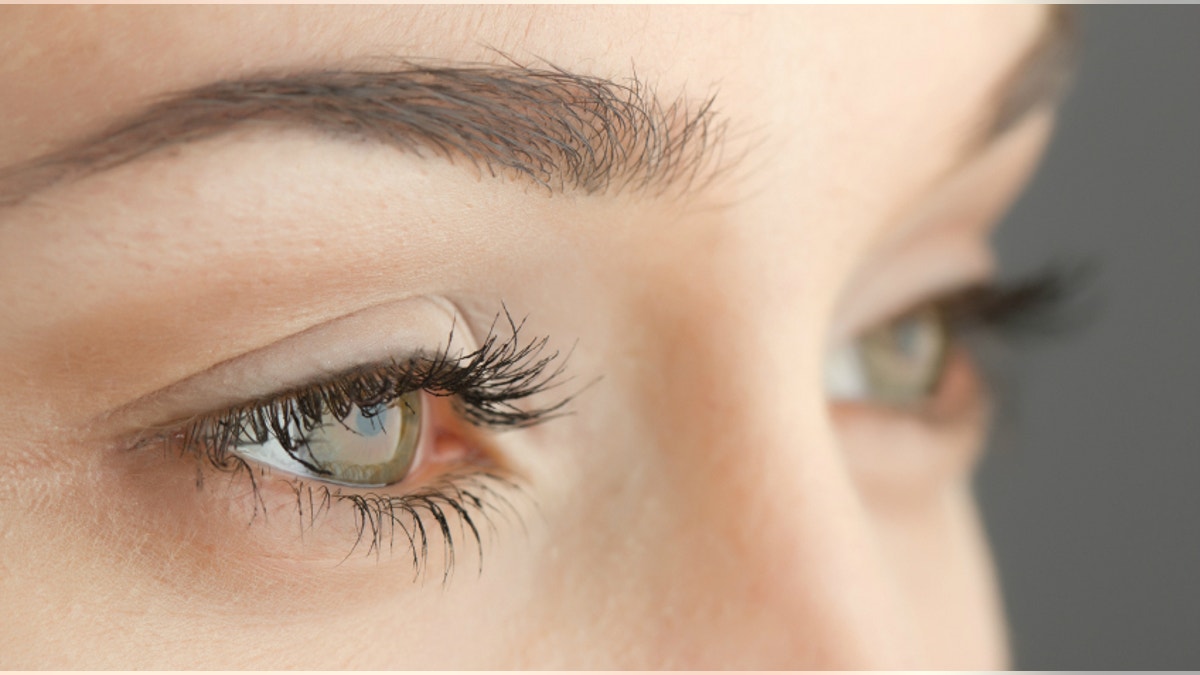
Between weight gain, morning sickness and fatigue, your body goes through a ton of changes during pregnancy. Yet you probably never knew that eye problems and vision changes could happen while you’re pregnant, too, and they can clue you and your doctor into potentially serious complications that can affect your health and your baby’s.
Here are the most common vision-related problems that can occur during pregnancy and how to tell if you should call your doctor.
Blurry vision
Blurry vision is one of the most common vision changes pregnant women experience. If you wear glasses or contact lenses, blurry vision doesn’t necessarily mean that your prescription has changed. Yet the curvature of your eye lenses can, which is likely due to hormones, said Dr. Brian Levine, a board-certified OB-GYN and fertility specialist, and the practice director for the Colorado Center for Reproductive Medicine in New York City.
However, if you have blurry vision or see floaters or stars in the third trimester , it could be a sign of the most severe form of preeclampsia, a condition that affects between 5 and 8 percent of pregnancies, Levine said. Preeclampsia can cause severe changes in the retina, including retinal hemorrhages, retinal detachment, even stroke and blindness.
Contact lens discomfort
The normal shift in fluid and hormones during pregnancy, particularly estrogen, can also change the curvature and thickness of the corneas.
Although it’s not likely that you’ll suddenly need glasses when you never wore them before, your prescription could change. In fact, a survey by U.K. retailer Vision Direct found that 26 percent of pregnant women had a change in their prescriptions during pregnancy. If you wear contact lenses, the fit can change and they might feel uncomfortable.
Fluid shifts can also cause fluid in the cornea but it's usually benign, said Dr. Anne Sumers, a board-certified ophthalmologist in Ridgewood, N.J. and a clinical spokesperson for the American Academy of Ophthalmology.
Any change you experience is likely temporary and will improve after you give birth.
Dry eyes and puffiness
During pregnancy, your eyes might feel dry, gritty or tired. Over-the-counter, preservative-free artificial tears are effective and safe to use for relief.
“Artificial tears don’t suppress your normal tear production, it just complements it and makes your eyes feel better,” Sumers said.
If you wake up with puffy eyelids, it should quickly subside. Sleeping with your head elevated can also help.
Migraines
Although headaches and migraines are common during pregnancy, you might also experience vision changes like blurred vision or flashes of light.
Proliferative diabetic retinopathy
Women diagnosed with gestational diabetes are not at risk for eye problems, and most who have type-1 or type-2 diabetes and become pregnant will not have any problems with their eyes.
There are however, a small percentage of those with diabetes— not gestational diabetes— that can have a severe aggravation of diabetic retinopathy, a condition that causes the blood vessels in the retina to change.
If the blood vessels close and prevent a sufficient amount of blood flow, new blood vessels can grow on the optic nerve or the iris, a condition known as proliferative diabetic retinopathy.
Laser treatment can manage the condition and is safe during pregnancy but women will also have to be monitored.
“Every diabetic woman needs to know this could happen and needs to see her ophthalmologist during the pregnancy to be checked,” Sumers said.
Just as you get ultrasounds and regular checkups at your provider’s office, it’s a good idea to get a baseline exam with an ophthalmologist. If you have any changes in your vision or problems with your eyes, no matter how minor you think they are, put a call into your provider immediately.
